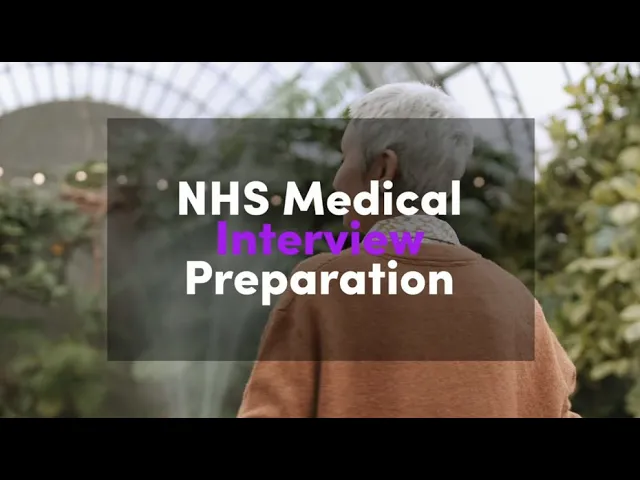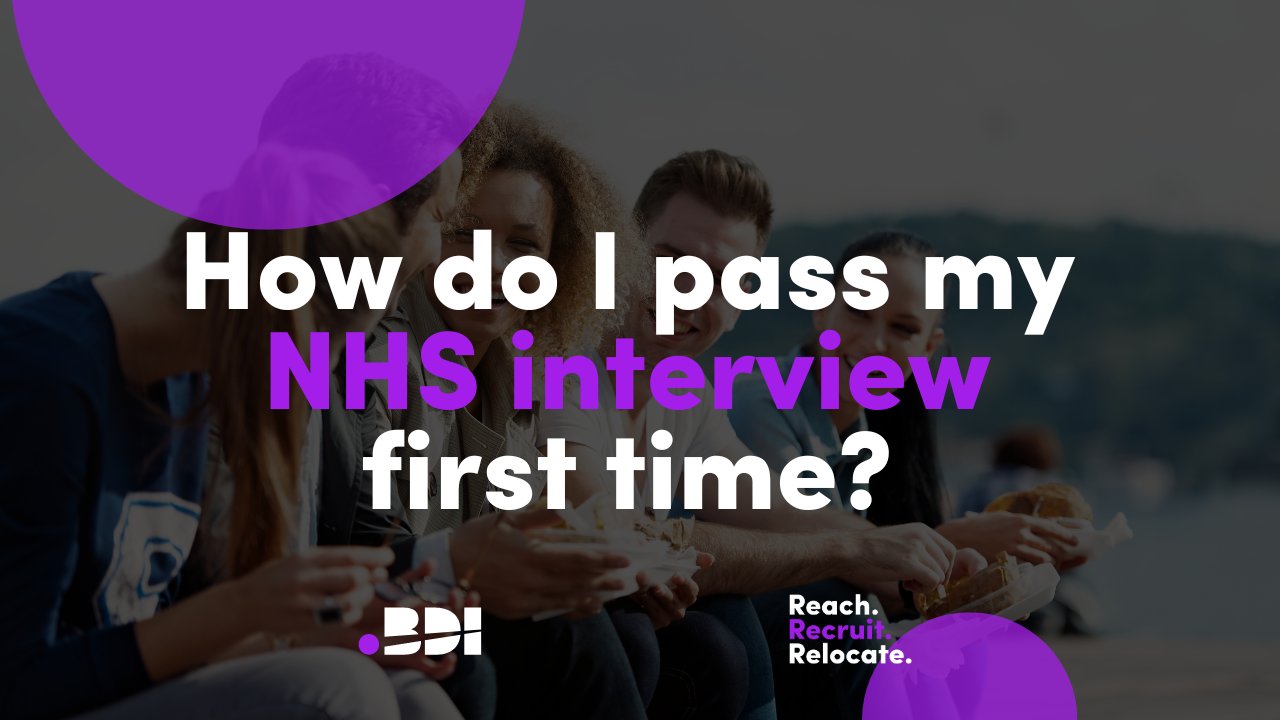What to expect during an NHS Medical Interview
25 Feb, 202314 Minutes
The process for international medical graduates to get a position in the NHS can be long and challenging, so if you’ve reached the stage where you have been invited for an NHS interview, congratulations! You have proven that your experience and training meet the standards for the role you’ve applied for.
To do well on the day, you need to know what to expect. Who will interview you? What kind of questions will they ask? Where will the interview be held? These are all questions we have answered in this article so that you can be fully prepared for the day.
Where Will Your Interview Be Held?
As an IMG, you will likely do the interview online via Microsoft Teams, which is a video call set-up. That means you can do the interview from your home.
Despite this different format, the interview will still look a lot like a typical NHS interview, with you having to answer the same types of questions while also ensuring you come across as clear and confident.
Who Will Be Interviewing You?
You can expect one or two senior-level clinicians to be present during the interview. There will also be either a manager or an HR person present throughout the interview to take notes and ensure the interview is being run correctly.
What to Expect When You Log On (including Types of Questions)
It’s important to be sat and ready at least five to ten minutes before your video interview. Once the interview begins, expect to introduce yourself and meet the team on video chat. From there, the interview will begin, involving the panel asking you a series of questions (although it’s generally best to see it as more of a conversation. Here are the types of questions you can expect from the interview:
Skills and Experience Questions
The first set of questions to expect during an NHS medical interview is biographical questions. Expect to answer questions about your clinical experience, academics, management experience, and general personal questions. Don’t worry if the interviewer asks you about certain skills that you aren’t confident in just yet – this is as much about them learning what support and training you’ll need as it is what you can bring to their team. This stage will be about your past and current self – your future goals will come up later.
Clinical Scenario Questions
Another common question you’ll get asked during an NHS interview involves a clinical scenario. The panel will present you with a typical clinical situation you’ll likely experience if you get the role (it’ll also probably be something you’ve encountered before). Often, the clinical scenario will be specific to your speciality. Think back to your PLAB 2 or final Royal College exams for common scenarios and read up on how to prepare for clinical scenarios.
This type of question warrants a lengthier answer in which you explain how you’d handle the situation, including diagnosis and treatment.
Ethical Scenario Questions
During the interview, there’s a high chance the panel will present you with an ethical dilemma. To answer this, consider the NHS values, which will help structure your answer. Their values include:
- working together for patients
- commitment to quality of care
- respect and dignity, compassion
- improving lives
- everybody counts.
Most importantly don’t forget to brush up on the four pillars of medical ethics and work through some example ethical scenarios.
Clinical Governance Questions
Many medical NHS interviews involve the panel asking the candidate about clinical governance. At the very least, you’re expected to know the definition. Clinical governance is an overarching system that ensures the ongoing improvement of patient care within the NHS. It has seven pillars:
- Clinical effectiveness and research
- Risk management
- Education and training
- Information and IT
- Audit
- Patient and public involvement
- Staff management
As well as knowing the definition, consider where you’ve seen clinical governance in action, as you may be asked to explain that. When thinking about how to prepare for clinical governance questions consider examples of how you’ve learned from mistakes or implemented improvements during your years of practising medicine.
Goals and Aspirations Questions
Towards the end of the interview, you’ll likely be asked about your goals and aspirations. You might talk about improving a skillset or working towards a consultant level. Having big plans proves your passion, so don’t be afraid of letting the panel know where you want to be in five (plus) years.
Competency Questions
Another type of question you’ll likely face in your NHS interview are competency questions. These questions are for you to demonstrate your abilities. For example, you might be asked to explain when you felt proud of yourself or when you managed a challenging patient. These questions often overlap with ethical and clinical scenarios.
Questions to Ask at the End
You’ll be invited to ask questions at the end of the interview. The last thing you want to say to this is no! It is an excellent opportunity to prove your enthusiasm while learning more about the role. Some questions you could ask include:
“What kind of support can I expect?”
“What are the training opportunities?”
“What does a typical day in the department look like?”
Of course, you can be more specific with your questions. If you’re applying for a specialist medical post, you can tailor your questions to that particular role.
How to Make an Impact
Attending an NHS interview via Teams means you have to make a positive impression over a video call. Here is how you can do just that:
Be Prepared and Ready for the Call
You don’t want technical issues to get in the way on the interview day. To ensure you’re ready, run a test call before to ensure all runs smoothly. You should also be prepared and sitting in front of the camera at least thirty minutes before the start time of the interview.
Dress for the Part
You still need to dress for the part despite taking place on camera! Of course, you don’t need to wear a suit and tie, but smart clothing will go a long way.
Consider Body Language
Body language matters even if you are not in the same room. Maintain eye contact and use open body language to show your confidence.
What Happens After the Interview?
Receiving an offer after an interview is an excellent achievement, so well done! The first offer is often conditional and given verbally and in the form of a letter. From there, you’ll need to complete the pre-employment checks. Here are some of the documents you’ll need for that:
- ID Documents
- References
- GMC Registration
- Qualifications
- Criminal Record and Barring Checks
After passing the pre-employment checklist, you’ll receive an unconditional offer letter and your employment contract, meaning you’ll start your career in the NHS in no time at all!
In Summary
Many IMGs choose to work for the NHS because of the development opportunities, work-life balance, and good pay. To get there, you’ll need to impress during the interview. By ensuring that you’re familiar with the types of questions you’ll be asked on the day, you are far more likely to make a good impression and receive an offer.
If you’re currently preparing for an interview as a doctor in the NHS let us know and we can send across a speciality specific guide with tailored questions based on hundreds of real life interviews that we have been a part of.



